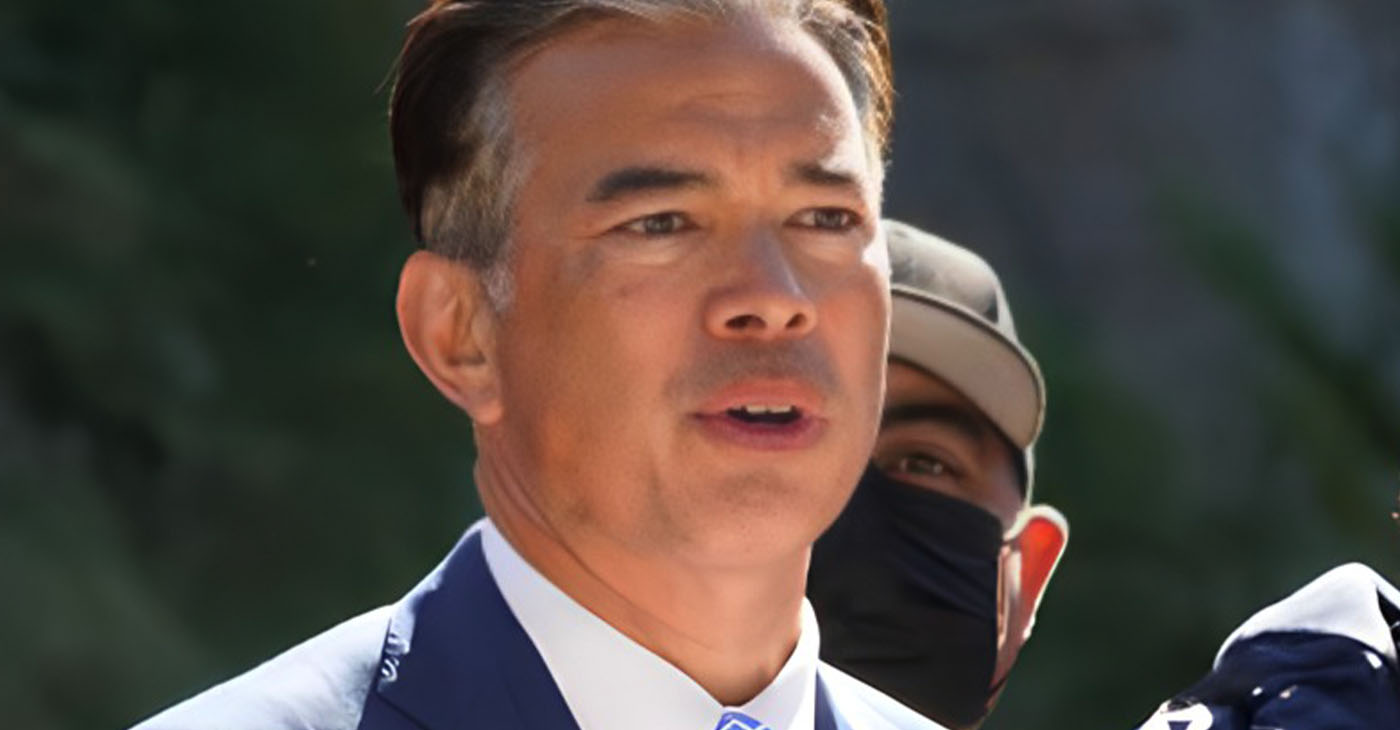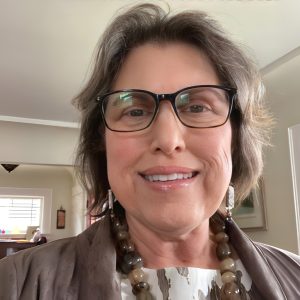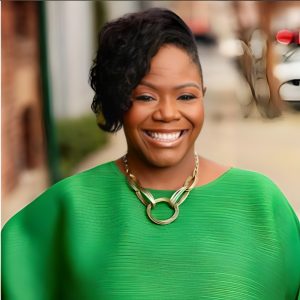Bay Area
Attorney General’s Office Denies Helping Holy Names University Sell Campus, Contrary to HNU’s Claims
In a recent letter to City of Oakland officials, Jeanine Hawk, HNU’s vice president for finance and administration, claimed that the university has been working closely with Bonta’s office and that the university’s decision to sell the property to the highest bidder is based on and guided by discussions with the Attorney General’s Office.

“Our office has not provided HNU with direction, approval or guidance,” said AG’s office”
By Ken Epstein
Holy Names University in Oakland continues to be not transparent or truthful with the public and Oakland officials in its claims that HNU is acting with the approval and guidance of the office of California Attorney General Rob Bonta to sell the 60-acre campus in the Oakland hills for high-end residential development when the campus permanently closes, currently scheduled for the end of the current semester in May.

Jeanine Hawk, HNU’s vice president for finance.
In a recent letter to City of Oakland officials, Jeanine Hawk, HNU’s vice president for finance and administration, claimed that the university has been working closely with Bonta’s office and that the university’s decision to sell the property to the highest bidder is based on and guided by discussions with the Attorney General’s Office.
“HNU has been in constant communication with the California Attorney General’s office regarding the manner of ensuring that any transfer of its property satisfies the requirements of California law,” Hawk said.
Further, she alleged that “discussions with the Attorney General’s office have resulted in an effort to market the property both through a real estate broker (Mike Taquino at CBRE) and through our continued communications with potential successor universities.”
Hawk also dismissed the City of Oakland’s offer to help maintain HNU as a center of higher education. “At this point it is unclear to HNU how the City of Oakland can assist with the process of achieving the objectives of obtaining the highest and best use of the HNU property for public good, particularly when HNU’s efforts to date have been in cooperation with the AG’s office,” she said.

Chief Deputy Attorney General Venus D. Johnson
However, in a strongly worded denial, Venus D. Johnson, Chief Deputy Attorney General in AG Bonta’s office, wrote in a March 17 letter to Oakland officials, “While HNU has kept the Attorney General’s Office apprised as to its efforts to secure a successor educational institution, our office has not provided HNU with direction, approval or guidance with regard to these efforts.”
“Any assertion to the contrary is inaccurate,” Johnson wrote.
“Specifically, although HNU has reported to you that this office has told HNU that it must sell to the highest bidder and that we have provided HNU with direction related to its marketing efforts, the Attorney General’s Office has done neither of these things,” according to Johnson’s letter.
Johnson emphasized that under the law the decision whether to sell the property is up to the HNU Board of Trustees. “A nonprofit corporation only needs approval from its board of directors to sell or transfer all or substantially all of its assets under terms the board deems is in the best interests of the corporation,” she said.
Johnson added that there are no legal reasons why HNU cannot work with a Historically Black College or University (HBCU) or other educational institution to maintain the campus as a center for higher education.
She wrote: “Let me be clear: HNU absolutely may consider entering into an agreement with a successor educational institution and continue to operate with an educational purpose and mission. While my office cannot require HNU to do this, neither can we prevent them from doing so: The decision is HNU’s and HNU’s alone.”
Several HNU students and an Oakland City Councilmember spoke this week about the potential for maintaining HNU as an institution of higher education on the “Education Today” program aired on radio station KPFA FM94.1.”
“There are a lot of unanswered questions: how did we get to this place?” Asked Aniya Bankston, chair of the HNU Black Student Union (BSU) and a pre-nursing student.
“There’s a very confusing time on campus, (and) anxiety is super high” among the students, she said.
Kiara Evans, a member of HNU student government and the also a BSU member, said she and other student leaders met with the HNU Board of Trustees, which she was disappointed to see was all white.
“They were very nonchalant,” said Evans. “Whatever we said, they just brushed us off. They didn’t really want to hear from us, and it’s pretty sad and disappointing that these people are in charge of our education. They’ve never even gotten to know us.”

Oakland District 4 Councilwoman Janani Ramachandran
City Councilmember Janani Ramashandran, who represents the area that includes the HNU campus, said she is working with other city leaders “to see this site used for higher education … not to follow the path of building luxury housing.”
“I’m cautiously optimistic,” she said. “It comes down to the will of the Holy Names board (to negotiate)” and some of the proposals for educational uses for the property.
In response to questions from the Oakland Post, HNU Vice President Hawk wrote:
“The AG wanted to emphasize that it does not direct organizations in these matters. The letter confirmed that HNU has been apprising the AG’s office of the current situation to share HNU’s proposed path forward and to make sure that HNU’s interpretation of applicable laws regarding the sale or transfer of property of a non-profit corporation will properly inform decision making by our Board of Trustees.”
Activism
Oakland Post: Week of April 24 – 30, 2024
The printed Weekly Edition of the Oakland Post: Week of April 24 – 30, 2024

To enlarge your view of this issue, use the slider, magnifying glass icon or full page icon in the lower right corner of the browser window. ![]()
Alameda County
DA Pamela Price Stands by Mom Who Lost Son to Gun Violence in Oakland
Last week, The Post published a photo showing Alameda County District Attorney Pamela Price with Carol Jones, whose son, Patrick DeMarco Scott, was gunned down by an unknown assailant in 2018.

Publisher’s note: Last week, The Post published a photo showing Alameda County District Attorney Pamela Price with Carol Jones, whose son, Patrick DeMarco Scott, was gunned down by an unknown assailant in 2018. The photo was too small for readers to see where the women were and what they were doing. Here we show Price and Jones as they complete a walk in memory of Scott. For more information and to contribute, please contact Carol Jones at 510-978-5517 at morefoundation.help@gmail.com. Courtesy photo.
Bay Area
State Controller Malia Cohen Keynote Speaker at S.F. Wealth Conference
California State Controller Malia Cohen delivered the keynote speech to over 50 business women at the Black Wealth Brunch held on March 28 at the War Memorial and Performing Arts Center at 301 Van Ness Ave. in San Francisco. The Enterprising Women Networking SF Chapter of the American Business Women’s Association (ABWA) hosted the Green Room event to launch its platform designed to close the racial wealth gap in Black and Brown communities.

By Carla Thomas
California State Controller Malia Cohen delivered the keynote speech to over 50 business women at the Black Wealth Brunch held on March 28 at the War Memorial and Performing Arts Center at 301 Van Ness Ave. in San Francisco.
The Enterprising Women Networking SF Chapter of the American Business Women’s Association (ABWA) hosted the Green Room event to launch its platform designed to close the racial wealth gap in Black and Brown communities.
“Our goal is to educate Black and Brown families in the masses about financial wellness, wealth building, and how to protect and preserve wealth,” said ABWA San Francisco Chapter President LaRonda Smith.
ABWA’s mission is to bring together businesswomen of diverse occupations and provide opportunities for them to help themselves and others grow personally and professionally through leadership, education, networking support, and national recognition.
“This day is about recognizing influential women, hearing from an accomplished woman as our keynote speaker and allowing women to come together as powerful people,” said ABWA SF Chapter Vice President Velma Landers.
More than 60 attendees dined on the culinary delights of Chef Sharon Lee of The Spot catering, which included a full soul food brunch of skewered shrimp, chicken, blackened salmon, and mac and cheese.
Cohen discussed the many economic disparities women and people of color face. From pay equity to financial literacy, Cohen shared not only statistics, but was excited about a new solution in motion which entailed partnering with Californians for Financial Education.
“I want everyone to reach their full potential,” she said. “Just a few weeks ago in Sacramento, I partnered with an organization, Californians for Financial Education.
“We gathered 990 signatures and submitted it to the [California] Secretary of State to get an initiative on the ballot that guarantees personal finance courses for every public school kid in the state of California.
“Every California student deserves an equal opportunity to learn about filing taxes, interest rates, budgets, and understanding the impact of credit scores. The way we begin to do that is to teach it,” Cohen said.
By equipping students with information, Cohen hopes to close the financial wealth gap, and give everyone an opportunity to reach their full financial potential. “They have to first be equipped with the information and education is the key. Then all we need are opportunities to step into spaces and places of power.”
Cohen went on to share that in her own upbringing, she was not guided on financial principles that could jump start her finances. “Communities of color don’t have the same information and I don’t know about you, but I did not grow up listening to my parents discussing their assets, their investments, and diversifying their portfolio. This is the kind of nomenclature and language we are trying to introduce to our future generations so we can pivot from a life of poverty so we can pivot away and never return to poverty.”
Cohen urged audience members to pass the initiative on the November 2024 ballot.
“When we come together as women, uplift women, and support women, we all win. By networking and learning together, we can continue to build generational wealth,” said Landers. “Passing a powerful initiative will ensure the next generation of California students will be empowered to make more informed financial decisions, decisions that will last them a lifetime.”
-

 Activism4 weeks ago
Activism4 weeks agoOakland Post: Week of March 27 – April 2, 2024
-

 #NNPA BlackPress4 weeks ago
#NNPA BlackPress4 weeks agoBeloved Actor and Activist Louis Cameron Gossett Jr. Dies at 87
-

 Community1 week ago
Community1 week agoFinancial Assistance Bill for Descendants of Enslaved Persons to Help Them Purchase, Own, or Maintain a Home
-

 Activism3 weeks ago
Activism3 weeks agoOakland Post: Week of April 3 – 6, 2024
-

 Business2 weeks ago
Business2 weeks agoV.P. Kamala Harris: Americans With Criminal Records Will Soon Be Eligible for SBA Loans
-

 Activism2 weeks ago
Activism2 weeks agoOakland Post: Week of April 10 – 16, 2024
-

 Community1 week ago
Community1 week agoAG Bonta Says Oakland School Leaders Should Comply with State Laws to Avoid ‘Disparate Harm’ When Closing or Merging Schools
-

 Community6 days ago
Community6 days agoOakland WNBA Player to be Inducted Into Hall of Fame























































